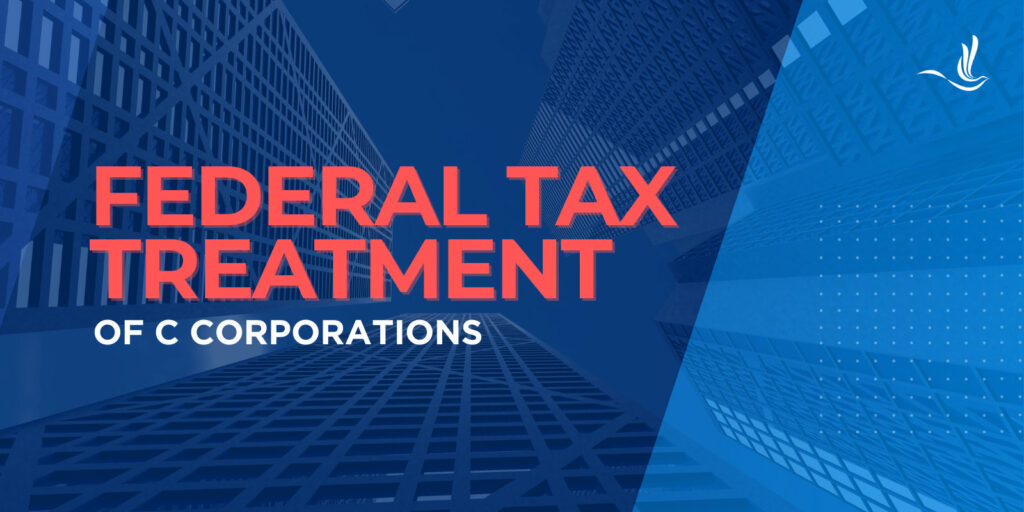
C corporations, or “C corps,” are a common business structure in the U.S. that offer several advantages, such as limited liability and the ability to raise capital through the sale of stock. One crucial aspect of operating a C corporation is understanding its federal tax treatment. The IRS has established a set of rules and regulations governing the federal tax treatment of C corporations, influencing their financial strategies and decision-making processes.
C Corp Tax Structure
C corporations are unique in that they are separate legal entities from their owners or shareholders. This separation gives rise to a distinct tax structure, often referred to as “double taxation.” Unlike pass-through entities, such as S corporations and partnerships, where profits and losses flow through to the owners’ personal tax returns, C corporations are subject to taxation at both the corporate and individual levels. In other words, the corporation will pay tax on their income after deductions, credits, and losses. Then the corporation will pay its shareholders dividends. The shareholders will then pay income taxes on dividend earnings.
Corporate Income Tax
C corporations are required to file a corporate income tax return (Form 1120) annually. The corporate income tax rate is a flat 21%. Additionally, C corporations can deduct a wide array of business expenses, such as salaries, wages, and operating costs, before calculating their taxable income. This deductibility provides corporations with an opportunity to minimize their taxable income and, consequently, their tax liability.
Dividend Distribution and Double Taxation
One of the defining characteristics of C corporations is the concept of double taxation. After the corporation pays its corporate income tax, any remaining profits can be distributed to shareholders in the form of dividends. However, these dividends are subject to individual income tax when received by shareholders on their personal tax returns.
This double taxation can be a significant consideration for both corporations and shareholders. To mitigate the impact, corporations may strategically manage dividend distributions and explore other options, such as reinvesting profits back into the business or utilizing stock buybacks.
Corporate Alternative Minimum Tax (CAMT)
Beginning in 2023, C corporations are also subject to the Corporate Alternative Minimum Tax (CAMT). The 15% CAMT applies to corporations with average adjusted book income over $1 billion for three consecutive years. The AMT operates alongside the regular corporate income tax, requiring corporations to calculate their tax liability under both systems and pay the higher of the two amounts. The CAMT is only expected to affect less than 150 organizations in the United States but will bring in revenues of more than $222 billion over a decade, according to the Congressional Budget Office (CBO).
Tax Planning Opportunities
Despite the challenges associated with double taxation, C corporations have certain tax planning opportunities that can enhance their financial position. For instance, corporations can explore tax credits for specific activities, such as research and development or renewable energy investments. Additionally, careful consideration of the timing of deductions and income recognition can optimize a corporation’s overall tax liability.
Tax Help for C Corporations
Understanding the federal tax treatment of C corporations is crucial for businesses operating under this structure. While double taxation may pose challenges, careful tax planning and strategic decision-making can help mitigate its impact. C corporations should consult with tax professionals to navigate the complex landscape of corporate taxation, ensuring compliance with IRS regulations and maximizing opportunities for financial growth and success. Optima Tax Relief is the nation’s leading tax resolution firm with over $1 billion in resolved tax liabilities.
If You Need Tax Help, Contact Us Today for a Free Consultation